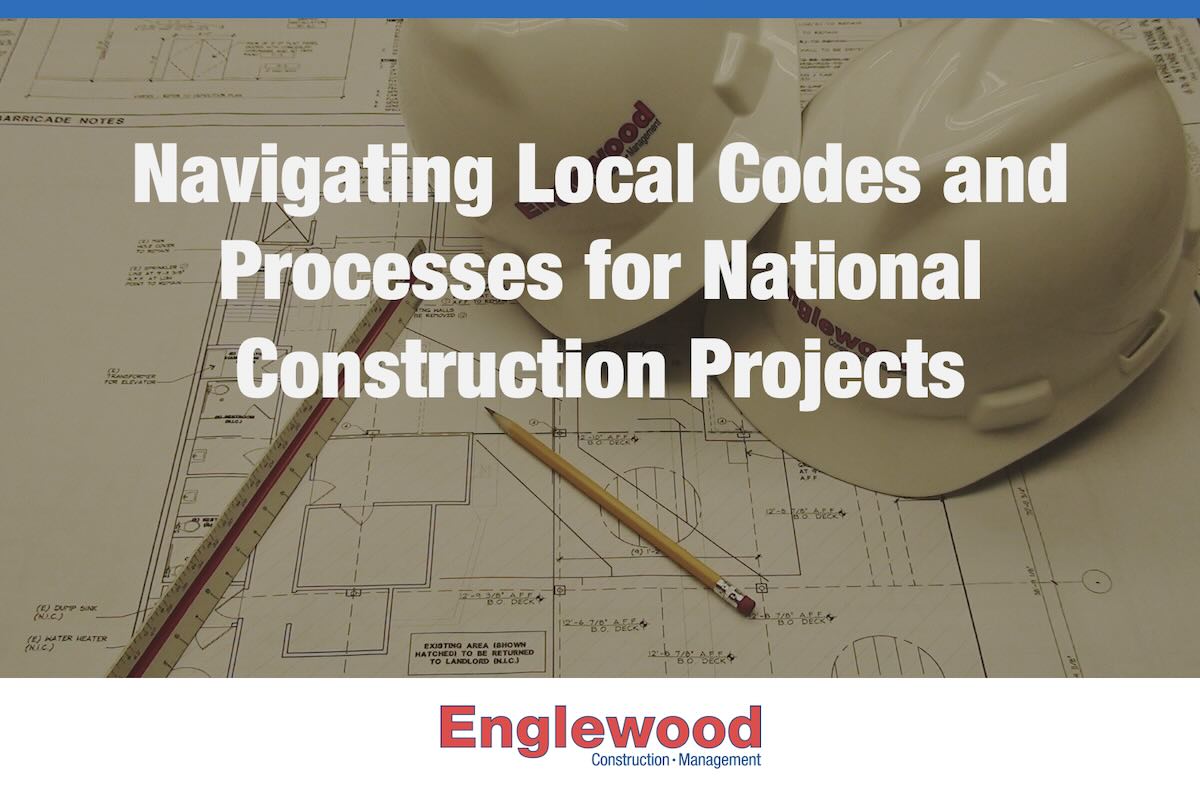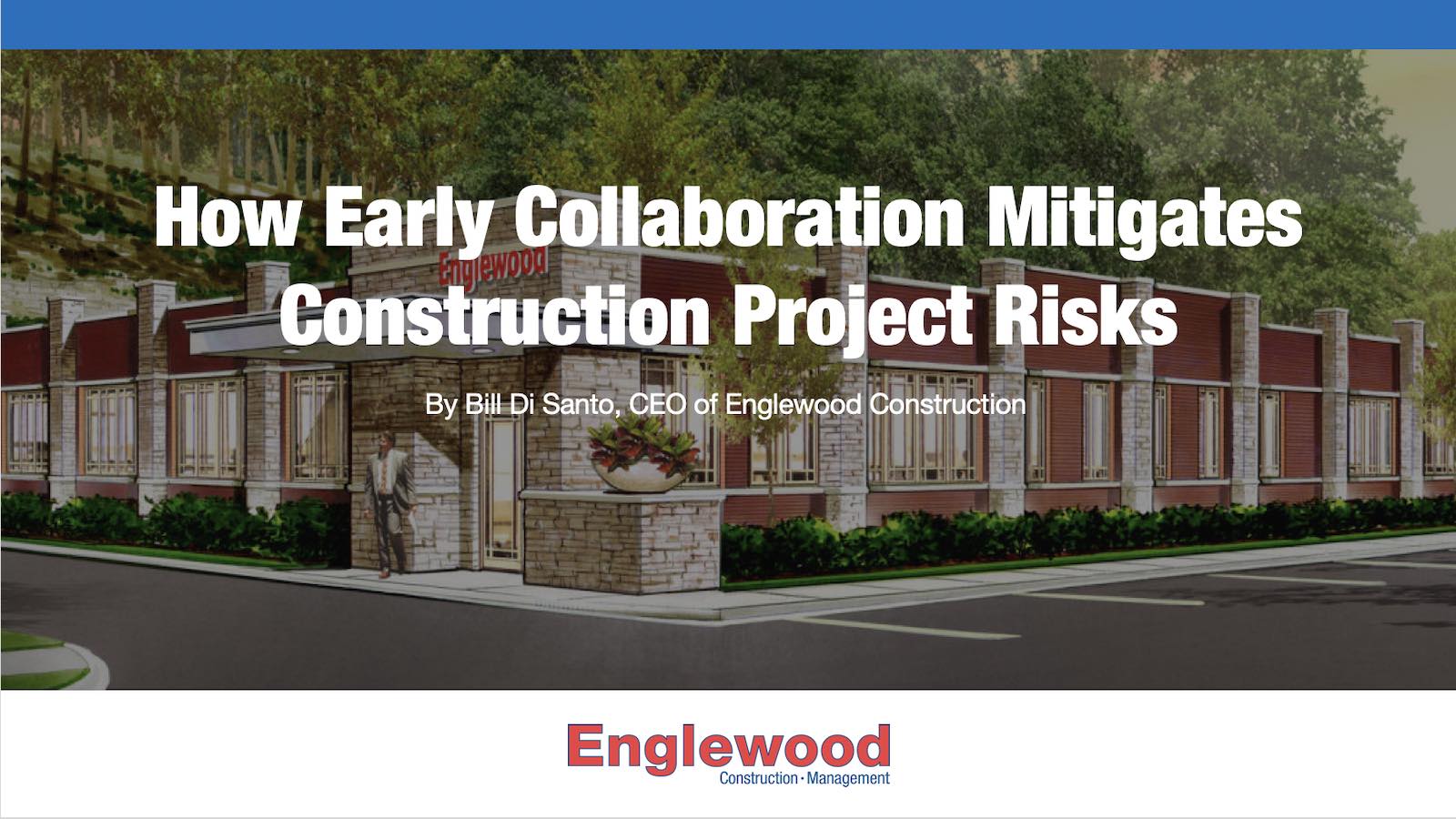Navigating Municiapal Codes and Processes for National Commercial Construction Projects
For a national general contractor working with corporate construction managers who manage projects across multiple regions, one of the most significant challenges is navigating the intricate web of local codes, regulations, and municipal processes. Whether you’re building a flagship retail space in New York or a restaurant in the suburbs of Chicago, each municipality has its own set of rules and guidelines that can impact timelines, budgets, and overall project success. Understanding the local lay of the land is no longer just an advantage—it’s essential to maintaining project consistency, efficiency, and compliance.
Over the past 25 years, Englewood has completed projects in more than 2000 municipalities nationwide.
Local Codes and Regulations: The Backbone of Every Project
Every city, county, and state has a distinct set of building codes and regulations, designed to ensure safety, sustainability, and local compliance. These can vary widely from one municipality to another. From seismic requirements in California to stormwater and hurricane regulations in Florida, local codes have a significant impact on the project scope and timeline.
For construction managers, this variability can be overwhelming. A contractor or project manager who doesn’t understand the specifics of each jurisdiction may face significant delays, fines, or even the need to redo work to meet local standards. Therefore, building a successful nationwide operation requires more than just understanding the physical construction process—it’s equally about mastering local codes and regulatory frameworks.
The Risk of Overlooking Local Code Nuances
Even the most experienced construction managers recognize that failing to account for local code differences can introduce risks that jeopardize the project’s success. Sometimes, these risks are financial—unexpected costs due to delays or fines for non-compliance. At other times, the risks are more time-sensitive, such as missed deadlines due to slow approval processes or issues arising from incomplete paperwork.
Understanding local processes and codes up front can help mitigate these risks. For example, an experienced GC who knows the local permitting process inside and out will be able to anticipate the required steps, ensuring they secure the necessary approvals before starting work. Likewise, knowing which inspections need to take place at specific stages ensures that the project moves smoothly from phase to phase.
Consistency in Construction: Delivering the Same High Standards Nationwide
For companies expanding into new regions or managing multiple locations nationwide, one of the most pressing concerns is maintaining consistency. The challenge of working across multiple municipalities is not just about understanding local regulations—it’s about ensuring that the quality of the build remains the same, regardless of location.
Construction managers need to ensure that design standards, quality controls, and project goals remain uniform, even when working with different local teams, subcontractors, and vendors. The ability to maintain a consistent standard of work while adapting to local codes and processes is crucial for delivering projects on time and within budget. In a country as diverse as the U.S., this level of consistency demands a careful balance of local expertise and standardized project management.
The Importance of a Strong Network of Local Subcontractors
A key factor in successfully navigating local regulations is having the right subcontractors who are well-versed in each municipality’s codes and processes. Without the support of a trusted network of local professionals, construction directors are left to manage additional complexities, such as sourcing skilled labor or coordinating vendors who may not be familiar with local regulations.
Englewood has built, vetted, and nurtured a 20,000+ tier-one network of experienced and project-tested subcontractors over the last 25+ years. We value subcontractor partners who deliver on their promises, communicate effectively, and respond promptly to our needs. We believe it enhances our project outcomes, mitigates risks, and supports the overall success of our national construction business.
Having an established network of local subcontractors ensures that the work is done to code, on time, and to the desired quality. These local teams also provide valuable insights into specific codes and processes that may not be immediately apparent to those less familiar with the region. This network helps mitigate risks associated with unfamiliar construction landscapes and offers a valuable resource for ensuring compliance.
Why Understanding Local Codes is Non-Negotiable
In today’s competitive construction environment, understanding local codes and regulations is no longer just an added benefit—it’s a necessity for construction directors. Whether managing a single-site project or handling multiple builds across the country, having an in-depth understanding of how local regulations impact each phase of the project is key to ensuring timely, compliant, and high-quality results.
Construction managers must prioritize staying informed about the latest changes in local codes, as well as ensuring that the teams they work with are well-equipped to handle the unique requirements of each municipality. By maintaining strong relationships with local officials, subcontractors, and vendors, construction directors can effectively mitigate risk and streamline the process from permitting to final inspection.
Streamlining Nationwide Expansion with Local Knowledge
For companies looking to expand or scale their operations across multiple regions, having a construction manager who understands the intricacies of local codes and processes is essential. It enables smoother and more efficient projects that meet local standards without compromising on quality or budget. With the right approach, construction directors can achieve nationwide consistency without the headache of navigating each municipality’s specific rules.
Englewood Construction has worked in more than 2,000 municipalities across the country, providing invaluable expertise in navigating the diverse regulatory environments that exist within each one. This vast experience enables us to efficiently adapt to local codes, ensuring that your projects stay on schedule and within budget while maintaining the high standards of quality your brand expects.
In summary, local codes and regulations are not merely bureaucratic hurdles—they are an integral part of the construction process. For construction managers overseeing projects in multiple municipalities, the ability to navigate this landscape is vital. With the right strategy, the complexities of local regulations can be turned into an advantage, ensuring consistent, on-time, and high-quality results across the board.




